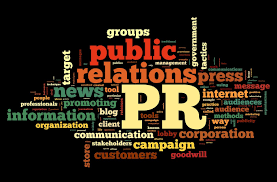Navigating Through Business Crises: Strategies for Resilience and Recovery
The Impact of Crises on Businesses
In today’s fast-paced and interconnected world, businesses are vulnerable to various crises that can have a significant impact on their operations, reputation, and bottom line. Crises come in many forms, including natural disasters, cyber-attacks, product recalls, financial scandals, and more. It is crucial for businesses to be prepared to effectively manage and mitigate the effects of these crises.
Types of Crises
Crises can be divided into different categories based on their nature and origin. Natural disasters such as earthquakes, hurricanes, or floods can disrupt operations and cause extensive damage to property and infrastructure. Cyber-attacks are another common type of crisis that can result in data breaches, financial losses, and reputational damage.
The Importance of Crisis Management
Effective crisis management is essential for businesses to navigate through challenging situations and emerge stronger. A well-defined crisis management plan outlines the roles and responsibilities of key stakeholders, communication strategies with internal and external audiences, steps for resolving the crisis, and procedures for evaluating the response.
Reputation Management
One of the critical aspects of crisis management is reputation management. A company’s reputation is its most valuable asset, and a crisis can quickly tarnish it if not handled properly. Transparent communication, swift action, taking responsibility, and demonstrating empathy are key elements in maintaining trust with stakeholders during a crisis.
Lessons Learned
Crises can also provide valuable lessons for businesses to improve their resilience and preparedness for future challenges. Conducting post-crisis evaluations helps identify areas for improvement in the crisis management plan and allows businesses to learn from their mistakes.
In Conclusion
In conclusion, crises are inevitable in today’s business environment. However, with proactive planning, effective communication strategies, and a commitment to learning from past experiences, businesses can successfully navigate through crises and emerge stronger on the other side.
Seven Advantages of Crises: Opportunities for Growth, Innovation, and Resilience in Business
- Crises provide opportunities for businesses to demonstrate their resilience and adaptability.
- Crises can uncover weaknesses in a business’s operations, allowing for improvements to be made.
- Crises present a chance for businesses to strengthen relationships with stakeholders through transparent communication and swift action.
- Crises can lead to innovation as businesses seek creative solutions to overcome challenges.
- Crises offer valuable learning experiences that help businesses enhance their crisis management strategies for the future.
- Crises provide an opportunity for leadership teams to showcase their decision-making skills under pressure.
- Crises can act as a catalyst for positive change within an organisation, driving growth and development.
Seven Critical Challenges Posed by Crises to Organisations
- Disruption of business operations
- Financial losses and impact on profitability
- Damage to reputation and loss of trust
- Legal implications and potential lawsuits
- Negative impact on employee morale and productivity
- Loss of customer confidence and loyalty
- Increased scrutiny from regulators and stakeholders
Crises provide opportunities for businesses to demonstrate their resilience and adaptability.
Crises present businesses with an opportunity to showcase their resilience and adaptability in the face of adversity. When a crisis strikes, how a business responds can significantly impact its reputation and long-term success. By demonstrating agility, quick decision-making, and effective crisis management strategies, businesses can not only navigate through challenging times but also emerge stronger and more prepared for future uncertainties. Crises serve as a test of a company’s ability to innovate, problem-solve, and pivot swiftly, ultimately highlighting its capacity to thrive in the midst of turmoil.
Crises can uncover weaknesses in a business’s operations, allowing for improvements to be made.
Crises can serve as a catalyst for positive change within a business by uncovering underlying weaknesses in its operations. When a crisis exposes vulnerabilities, it presents an opportunity for the business to address and rectify these issues, leading to improvements in processes, systems, and overall resilience. By identifying and resolving weaknesses during a crisis, businesses can emerge stronger and more prepared to handle future challenges effectively.
Crises present a chance for businesses to strengthen relationships with stakeholders through transparent communication and swift action.
During crises, businesses have the opportunity to enhance their relationships with stakeholders by engaging in transparent communication and taking swift action. By being open and honest about the situation, addressing concerns promptly, and demonstrating a commitment to resolving issues effectively, businesses can build trust and credibility with their stakeholders. This proactive approach not only helps in managing the immediate crisis but also lays a foundation for stronger relationships that can endure future challenges.
Crises can lead to innovation as businesses seek creative solutions to overcome challenges.
Crises can act as a catalyst for innovation within businesses as they are forced to think outside the box and find creative solutions to overcome challenges. When faced with a crisis, companies often need to adapt quickly, explore new ideas, and implement innovative strategies to navigate through uncertain times. This process of innovation not only helps businesses overcome immediate obstacles but also fosters a culture of creativity and resilience that can benefit them in the long run. By embracing the opportunities for innovation that crises present, businesses can emerge stronger and more adaptable in the face of future challenges.
Crises offer valuable learning experiences that help businesses enhance their crisis management strategies for the future.
Crises, despite their challenges, offer valuable learning experiences that can significantly benefit businesses in enhancing their crisis management strategies for the future. By navigating through a crisis, businesses gain firsthand insights into what works and what doesn’t in managing unexpected situations. These experiences enable companies to identify weaknesses in their current crisis management plans, implement necessary improvements, and develop more robust strategies to handle similar crises effectively in the future. Ultimately, each crisis serves as a learning opportunity that allows businesses to strengthen their resilience and preparedness for any unforeseen challenges that may arise.
Crises provide an opportunity for leadership teams to showcase their decision-making skills under pressure.
Crises present a unique opportunity for leadership teams to demonstrate their ability to make critical decisions under intense pressure. In times of crisis, effective leaders must act swiftly, decisively, and strategically to navigate through challenges and steer their organisations towards a positive outcome. By showcasing strong decision-making skills during crises, leadership teams can inspire confidence among stakeholders, instil trust in their capabilities, and ultimately emerge as resilient and respected leaders in the face of adversity.
Crises can act as a catalyst for positive change within an organisation, driving growth and development.
Crises can serve as a catalyst for positive change within an organisation by pushing it to re-evaluate existing processes, innovate new solutions, and adapt to challenges. When faced with a crisis, businesses are often compelled to think creatively, make tough decisions, and implement changes that can lead to long-term growth and development. By embracing the opportunity for transformation during times of crisis, organisations can emerge stronger, more resilient, and better equipped to navigate future challenges successfully.
Disruption of business operations
One significant con of crises is the disruption of business operations. When a crisis strikes, it can lead to the sudden halt or severe impairment of normal business activities. This disruption can result in financial losses, missed deadlines, reduced productivity, and damage to customer relationships. Businesses may struggle to meet their obligations, fulfill orders, or provide services, leading to a negative impact on their reputation and competitiveness in the market. The need to divert resources towards crisis management further exacerbates the disruption of day-to-day operations, making it challenging for businesses to maintain continuity and stability during turbulent times.
Financial losses and impact on profitability
During crises, one significant con that businesses face is the potential for financial losses and the impact on profitability. Crises can disrupt normal operations, leading to decreased sales, increased expenses, and loss of revenue streams. The costs associated with managing the crisis, such as implementing recovery measures, repairing damages, and addressing legal issues, can further strain financial resources. Additionally, the negative publicity and reputational damage that often accompany crises can result in decreased customer trust and loyalty, impacting long-term profitability. It is crucial for businesses to have robust risk management strategies in place to mitigate the financial implications of crises and ensure sustainable business performance.
Damage to reputation and loss of trust
During a crisis, one significant con is the potential damage to reputation and the loss of trust that businesses may experience. When a company faces a crisis situation, how it responds and communicates can have a lasting impact on its reputation. If stakeholders perceive the response as inadequate, dishonest, or insensitive, it can erode trust and credibility built over years. Rebuilding trust after a reputation has been tarnished can be a challenging and lengthy process, highlighting the importance of handling crises with transparency, accountability, and empathy to mitigate the negative effects on reputation and trust.
Legal implications and potential lawsuits
One significant con of crises for businesses is the legal implications and potential lawsuits that may arise. During a crisis situation, businesses may face legal challenges related to liability, compliance, contractual obligations, and more. Failure to handle a crisis appropriately can lead to lawsuits from affected parties, regulatory bodies, or other stakeholders seeking compensation or holding the business accountable for damages. Legal proceedings can be time-consuming, costly, and damaging to a company’s reputation if not managed effectively. It is crucial for businesses to address legal considerations promptly and proactively during a crisis to mitigate the risk of facing prolonged litigation and potential financial repercussions.
Negative impact on employee morale and productivity
During crises, such as natural disasters or financial downturns, businesses often experience a negative impact on employee morale and productivity. Uncertainty about the future, increased workloads due to operational disruptions, and fear of job security can lead to stress and anxiety among employees. This can result in decreased motivation, lower job satisfaction, and reduced productivity levels within the organisation. It is crucial for businesses to address these concerns promptly through transparent communication, providing support mechanisms for employees, and demonstrating empathy to maintain morale and productivity during challenging times.
Loss of customer confidence and loyalty
During a crisis, one significant con is the potential loss of customer confidence and loyalty. When a business faces a crisis situation, customers may question the company’s reliability, trustworthiness, and ability to deliver on promises. This loss of confidence can lead to customers seeking alternative options, impacting the business’s long-term relationships and loyalty. Rebuilding trust with customers after a crisis can be challenging and requires transparent communication, swift resolution of issues, and a commitment to addressing customer concerns effectively.
Increased scrutiny from regulators and stakeholders
During crises, businesses often face increased scrutiny from regulators and stakeholders, which can add another layer of complexity to an already challenging situation. Regulators may closely monitor the company’s actions and response to the crisis, potentially leading to investigations or penalties if any misconduct is uncovered. Stakeholders, including customers, investors, employees, and the public, become more vigilant in assessing the company’s transparency, accountability, and ethical standards during a crisis. Managing this heightened scrutiny requires businesses to be proactive in their communication efforts and demonstrate a commitment to addressing concerns transparently and effectively.




